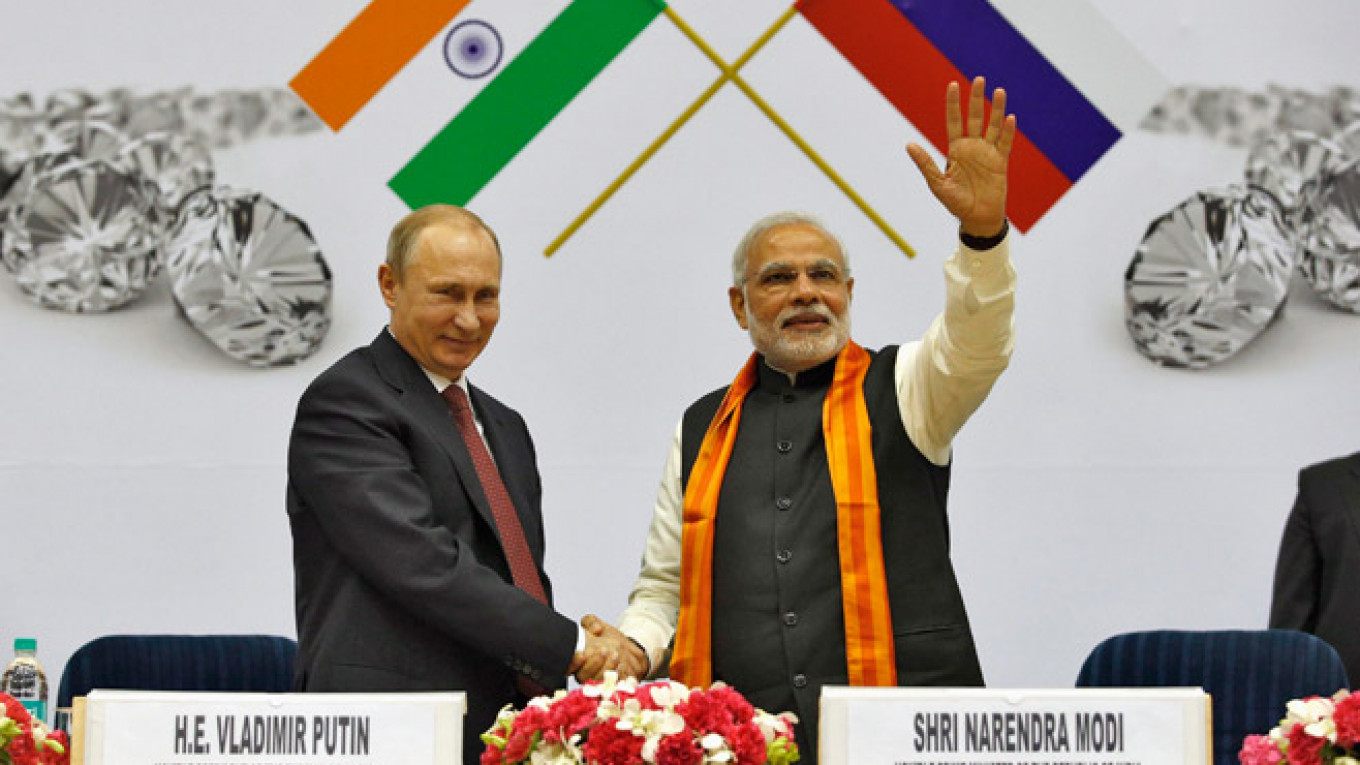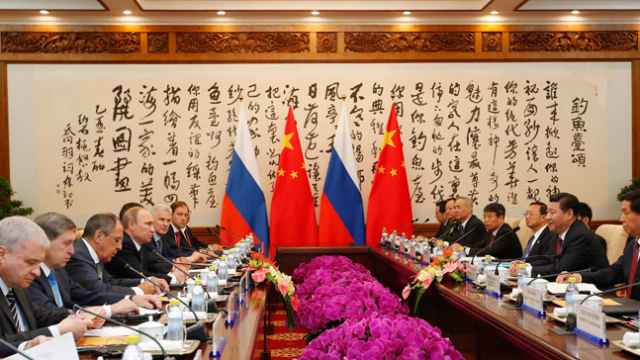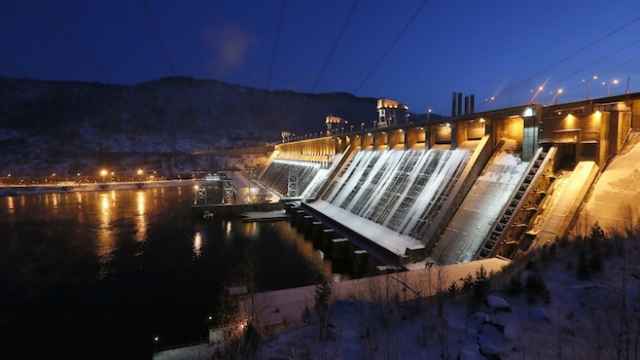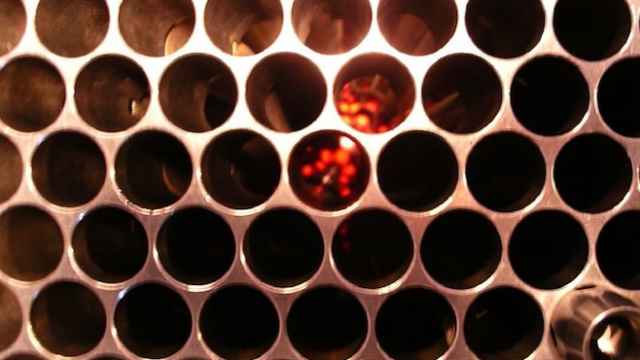NEW DELHI — Indian Prime Minister Narendra Modi told President Vladimir Putin on Thursday that Russia will remain India's top defense supplier, even though New Delhi's options had improved since the end of the Cold War.
Modi spoke after a one-day summit that sought to revive a relationship that peaked in the Soviet era. The two sides signed billions of dollars of deals in nuclear power, oil and defense.
In the biggest, state-owned Rosatom will build 12 nuclear reactors in India, oil major Rosneft signed a 10-year crude supply deal with Essar Oil and India agreed to assemble 400 Russian multi-role helicopters a year.
The Ka-226T twin-engined helicopter deal is important for Modi, who wants to upgrade a military that relies on outdated Soviet equipment and build India's defense production capacity.
"Even if India's options have increased, Russia remains our most important defense partner," Modi, 64, told reporters after the first formal summit between the leaders since he won election in May.
Putin's visit comes as the Kremlin grapples with a sliding oil price and an economy that has been undermined by Western sanctions over its annexation of Crimea last spring and support for an uprising in eastern Ukraine.
The tension over Ukraine intruded on the choreographed visit when it emerged that the Russian-backed leader of Crimea had traveled as part of Putin's delegation.
"We highly appreciate the friendship, trust and mutual understanding with Indian partners," said Putin, who chiefly touched on bilateral issues in his statement to journalists. No questions were allowed.
The two leaders presided over the signing of a "vision" document setting out a roadmap for cooperation in the sphere of nuclear power. Putin said Russia could eventually supply India with 20 nuclear reactors.
In the event, Rosatom said that it would supply 12 nuclear energy reactors for India over 20 years.
A 1,000-megawatt reactor is operating at the Russian-built Kudankulam power station in south India, with a second due on-stream in 2015.
Indian officials said a total of six reactors will be built at Kudankulam. A further six will follow at a site to be determined.
Other strategic deals covered oil supply, infrastructure and an increase in direct diamond sales to India by Russian state monopoly Alrosa.
On defense, the two sides will seek to move ahead with long-delayed projects to develop a joint fifth-generation fighter jet and a multirole transport aircraft, in addition to the chopper deal.
A spokesman for India's foreign minister said he was not officially aware of the visit by Crimean leader Sergei Aksyonov, who is subject to Western sanctions.
But Gul Kripalani, a Mumbai businessman who met the Crimean leader at a New Delhi hotel, told Reuters the talks were unofficial and Aksyonov had traveled to India as part of Putin's delegation.
A Message from The Moscow Times:
Dear readers,
We are facing unprecedented challenges. Russia's Prosecutor General's Office has designated The Moscow Times as an "undesirable" organization, criminalizing our work and putting our staff at risk of prosecution. This follows our earlier unjust labeling as a "foreign agent."
These actions are direct attempts to silence independent journalism in Russia. The authorities claim our work "discredits the decisions of the Russian leadership." We see things differently: we strive to provide accurate, unbiased reporting on Russia.
We, the journalists of The Moscow Times, refuse to be silenced. But to continue our work, we need your help.
Your support, no matter how small, makes a world of difference. If you can, please support us monthly starting from just $2. It's quick to set up, and every contribution makes a significant impact.
By supporting The Moscow Times, you're defending open, independent journalism in the face of repression. Thank you for standing with us.
Remind me later.






